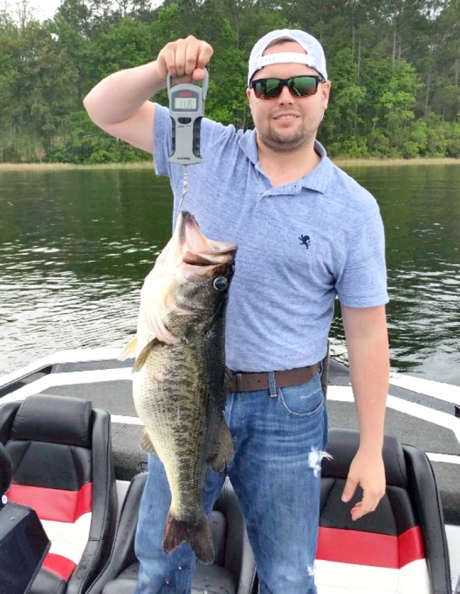March offers peak fishing for many of Florida’s freshwater fishes!
By Bob Wattendorf
Throughout the southeast, freshwater anglers await early spring fishing, not just because of the glorious weather but also because the majority of sportfish are beginning their spawning patterns. The TrophyCatch (TrophyCatchFlorida.com) program clearly shows that submissions of bass heavier than 8 pounds, which are caught in Florida, documented and released, peaks each March. This is similar to other sunfishes, which are in the same family of fish as bass and include bream and crappie.
Although February to April are prime spawning periods for these sunfishes, anglers and scientists both know the lunar cycle and weather also play key roles.
Credit for the Solunar Theory goes to John Alden Knight, the author of “Moon Up … Moon Down.” In 1926, he considered folk lore that he picked up while fishing in Florida and decided to evaluate 33 factors, which might influence behavior of fresh or saltwater fishes that caused them to be periodically more active. Of those, three were influential: sunrise/sunset, moon phase and tides. From that effort, this avid fly fisherman created the Solunar Theory (Sol = sun, and Lunar = moon), and published the first Solunar Tables in 1936. These tables are still widely published. In fact, numerous programs, apps and even digital watches use them.
To substantiate this theory, Knight considered the timing of 200 record catches, and found that more than 90 percent were made during a new moon (when no moon is visible). During a new moon, both bodies are in near-perfect rhythm, traveling the skies together with their forces combined. So you may want to consider being at your favorite fishing hole mid-morning on the 8th and 9th of March.
However, other factors can affect the predictive ability of solunar tables. For instance, you should consider local weather patterns. Barometric changes, especially a downward trend, can often ruin fishing. Fish and wildlife have an innate ability to predict weather and react accordingly. If the barometer is steady or rising and air temperature is approximately 15 degrees Fahrenheit higher than water temperature, a more active response to a solunar prediction can be anticipated.
Temperature is also associated with spawning times and can be a key factor in the seasonal patterns with which freshwater fish are sought. Black crappie, for instance tend to spawn when water temperatures are between 62 and 65 degrees Fahrenheit, and are the earliest sunfishes to spawn. Redbreast sunfish come in around 60 to 82 degrees, so although they start early, they have a longer spawning season than many. Most bass will bed when the water is between 62 and 75 degrees, and they can spawn multiple times per season. Redear like 70- to 80-degree water, and bluegill follow along between 75 and 85 degrees. Of course, none of these temperatures, moon phases or weather patterns can totally predict either spawning or feeding behaviors, but together they are good indicators that point to spring being a great time to be out fishing on Florida’s fresh waters.
By going to TrophyCatchFlorida.com anglers can register, submit bass over 8 pounds that they catch and release, along with a photo of the entire fish on the scale to earn great rewards, starting with $100 in Bass Pro Shops gift cards. Anglers can also examine trophy catches from around the state. Once registered, people can also submit any of 32 other species of freshwater fishes to the Big Catch program, by just exceeding the qualifying weight or length and earn a certificate.
The FWC encourages you to get outdoors and enjoy freshwater fishing this spring. Remember that if you are between 16 and 65 you most likely need a fishing license (to purchase one visit GoOutdoorsFlorida.com), and even if you aren’t required you can join the many anglers who say “I DO” support fish and wildlife conservation by purchasing a license. All fishing license revenues go to the FWC to conserve the resource and enhance your fishing and boating opportunities. Moreover, every new license purchase helps recover more money from the federal government for Sport Fish Restoration projects in Florida (see FloridaFishingLicenseCampaign.com).
Instant licenses are available at GoOutdoorsFlorida.com or by calling 888-FISH-FLORIDA (347-4356). Report violators by calling 888-404-3922, *FWC or #FWC on your cell phone, or texting to Tip@MyFWC.com. Visit MyFWC.com/ and select “News,” then “Monthly Columns,” or bit.ly/FishBusters for more Fish Busters’ Bulletins. To subscribe to FWC columns or to receive news releases, visit MyFWC.com/Contact.

